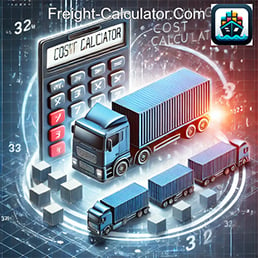International Moving Company Expert Shipping Since 1991
Moving internationally is a significant undertaking, and having the right resources is key to making the process smooth and efficient. At Freight Calculator, we offer expert comprehensive services as an International Moving Company, ensuring that your move overseas is handled with the utmost care and precision. Our team of experts leverages decades of experience and cutting-edge technology to provide accurate quotes and personalized solutions for every move.

International Moving Cost Calculator
Our International Moving Cost Calculator provides instant quotes tailored to your specific needs. Whether you are moving household goods, personal items, or even vehicles, our movers-cost-calculator helps you estimate the cost of shipping, customs clearance, and delivery to your new home overseas. It factors in the size and weight of your shipment, the origin and destination points, and any special requirements to provide a clear and accurate estimate.

Movers Cost Calculator
For a detailed breakdown of all the costs involved in your international move, our Movers Cost Calculator is an essential tool. It not only covers shipping expenses but also accounts for additional services like packing, insurance, and temporary storage. This tool is designed to give you a complete picture of the moving costs, allowing you to budget effectively and avoid any hidden charges.
Moving Company Cost Calculator
As an International Moving Company, we understand the complexities of moving overseas. Our Moving Company Cost Calculator simplifies the process by offering a one-stop solution for estimating all expenses related to your move. From door-to-door shipping to customs paperwork and final delivery, our calculator provides comprehensive cost estimates for each step of the journey.
Comprehensive Moving Solutions
Freight Calculator is more than just a International Moving Company. We provide all the tools and resources needed to accomplish a successful overseas move. Our easy-to-use calculators, experienced logistics professionals, and vast global network ensure that your international relocation is as stress-free as possible. From coordinating the transport of your household items to managing customs clearance, we take care of all the details, so you don't have to.
The Benefits of Using Our Moving Tools
Our International Moving Cost Calculator and Movers Cost Calculator provide transparent pricing, allowing you to make informed decisions about your move. These tools are designed to streamline the moving process, offering real-time quotes, complete cost breakdowns, and flexible booking options. With Freight Calculator, you have everything you need at your fingertips to plan and execute a successful international move.

